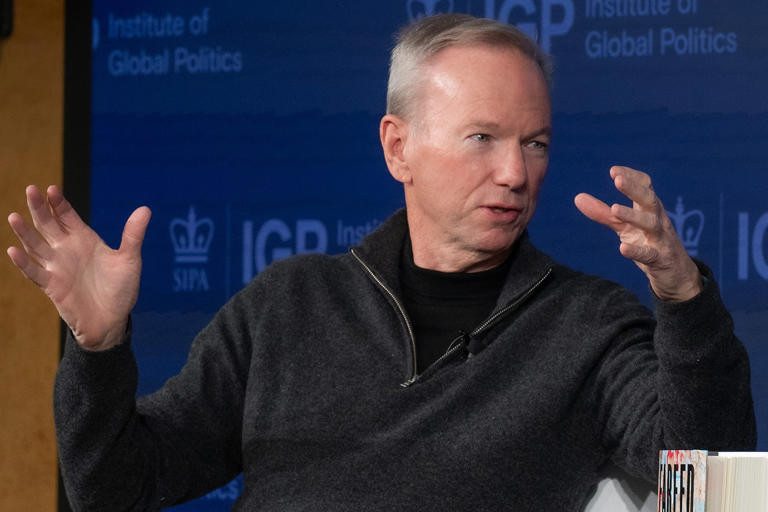Eric Schmidt’s foresight regarding the future security measures surrounding powerful AI systems offers a glimpse into the intricate web of factors shaping the technological landscape. The notion of heavily guarded AI installations, reminiscent of military bases bristling with barbed wire and machine guns, sparks contemplation about the evolving relationship between cutting-edge technology and national security.
At the heart of Schmidt’s prediction lies the recognition of AI’s transformative potential. As AI capabilities burgeon, encompassing realms from autonomous systems to advanced machine learning algorithms, the stakes for safeguarding these technologies soar commensurately. Governments worldwide, cognizant of AI’s strategic importance, are increasingly inclined to fortify their AI assets against both external threats and potential misuse.
The competitive rivalry between global powers, epitomized by the US-China AI race, amplifies the urgency of fortifying AI systems. With both nations vying for technological supremacy, the prospect of heavily guarded AI installations becomes not merely speculative but emblematic of a broader geopolitical struggle. In this landscape, the protection of AI assets assumes paramount importance, as they are perceived not just as technological innovations but as critical components of national defense and economic competitiveness.
Schmidt’s trajectory from Google CEO to an AI enthusiast and investor underscores the pervasive influence of AI across diverse sectors. His strategic investments in AI startups and collaborations on seminal works like “The Age of AI” underscore the imperative for interdisciplinary engagement in navigating the complexities of AI governance. Indeed, as AI permeates every facet of society, from healthcare to finance, fostering dialogue among stakeholders becomes indispensable in crafting ethical, equitable, and effective frameworks for AI development and deployment.
Beyond the realm of speculation, Schmidt’s insights provoke reflection on the societal implications of AI militarization and the imperative for responsible innovation. As AI technologies become increasingly intertwined with national security apparatuses, questions surrounding accountability, transparency, and democratic oversight loom large. Striking a balance between technological innovation and ethical stewardship emerges as a pressing imperative in steering AI towards beneficial outcomes while averting unintended consequences.
In essence, Schmidt’s vision of heavily guarded AI systems encapsulates the intricate interplay between technological advancement, geopolitical dynamics, and societal values. As we navigate the uncharted waters of the AI era, Schmidt’s perspective serves as a poignant reminder of the profound responsibilities accompanying technological progress and the imperative for collective action in shaping a future where AI serves as a force for good.
